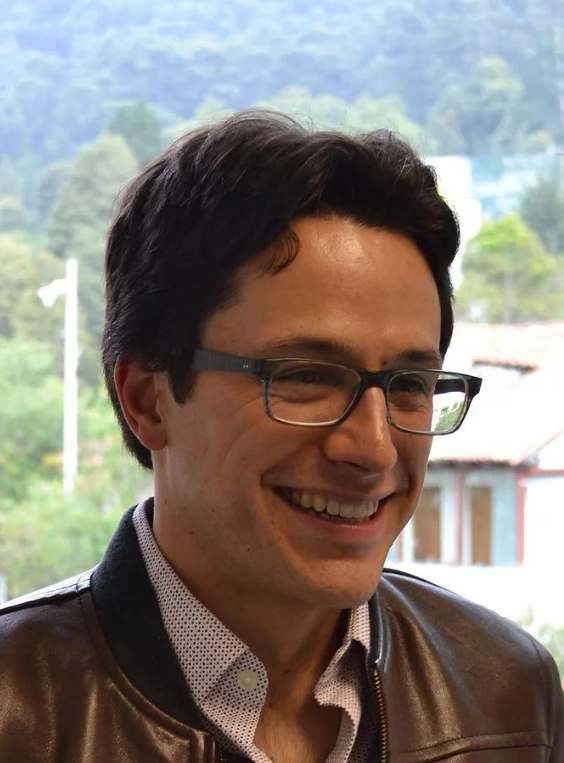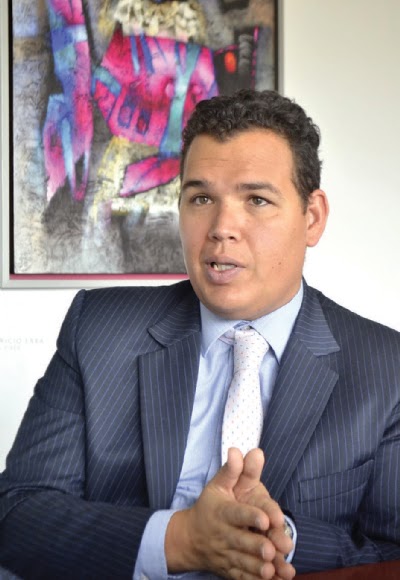Elections Series: Colombia — Presidential


Author: Matthew Lisiecki
On Sunday, May 29th, voters in Colombia will go to the polls to elect a new president. We spoke with two Colombia-based EGAP members in order to understand the current political landscape ahead of the election, introduce the candidates, and lay out the main issues at stake.
Leopoldo Fergusson is an economist working on political economy and development economics, which often draw me into economic history. He directs CEDE, the research center of the Department of Economics at Universidad de los Andes, and is also a Co-Director of EGAP’s Latin America Regional Hub.
Juan Vargas is Professor of Economics at Universidad del Rosario, Colombia and Research Economist at CAF-Development Bank of Latin America. His main interests are in the areas of political economy and development, focusing particularly on the causes and consequences of violent armed conflict, the economics of crime and the interplay between political and economic institutions.
To begin, we would like to ask about the context of politics in Colombia. In spring 2021, the country saw weeks of protests initiated by current President Ivan Duque’s proposed tax reform bill. In the months since then, how has the situation changed?
Juan Vargas: I believe the situation has changed in that the frequency and intensity of protests and demonstrations has decreased. But it has only done at the surface and most likely temporarily. The structural problems that triggered the protests have not been addressed.
Leopoldo Fergusson: It is true that we have not seen as massive demonstrations as we saw in the Spring. I also agree with Juan that there is still widespread discontent and, indeed, smaller but nonetheless recurrent and sometimes significant protests have occurred. The government responded so poorly to protests that the response itself became a cause of outrage.
Ivan Duque, who represents the Centro Democrático (Democratic Centre) party, is ineligible for re-election thanks to a one-term limit in the Colombian constitution. What are the main candidates running to replace Duque, and where do they fit on Colombia’s political spectrum?
JV: There are currently three candidates with chances to transition to the runoff election in June. The only one who most certainly will get to that stage is leftist Gustavo Petro, who came second in the 2018 runoff. Petro runs on an agenda that seeks structural social changes, especially to the health and pensions systems. However, it is not clear what is the fiscal impact of these reforms and whether they will be approved by Congress, since Petro lacks a majority.
The second is Federico Gutierrez, around whom all the right and center-right political sectors have closed lines. His campaign so far has lacked substance and the initial euphoria for a candidate backed by the political establishment has lost some momentum.
The third one is Rodolfo Hernández, a former mayor of Bucaramanga whose campaign has focused on social media and who runs with an anti-corruption and anti-traditional politics campaign. In the last few weeks Hernandez has managed to capture the support of some indecisive voters and of citizens that are looking for an alternative in the light of the high left-right political polarization.
LF: I would only add that perhaps the biggest surprise is that Sergio Fajardo, candidate of a centrist coalition and former mayor of Medellin and governor of Antioquia, has gathered very little support. Many unforced errors of the coalition and political polarization probably explain the disappointing prospects of a more moderate option.
One of the pillars of Duque’s campaign was opposition to the peace settlement that his predecessor, Juan Manuel Santos, negotiated to end the decades-long conflict with FARC. Where do the candidates in this year’s elections stand on the settlement?
JV: Sadly, the implementation of the peace agreement and the necessary efforts to catch up with it after four years of inaction (and sometimes active counteraction) has not been at the front of any candidate’s agenda. In the past, the peace agreement was a polarizing issue and so candidates of the current election have largely avoided talking about it. This means that, most likely, whoever the elected president is, accelerating the implementation of the agreement seems of second order importance.
LF: Without dismissing these points, let me offer a glass-half-full perspective: the peace process is not the main source of political dispute right now, and this also implies that it is less likely that the next President spends (as Duque did) years attempting to counteract some of the peace deal’s implications.
What are the other primary issues at stake in this election?
JV: The campaign topics have been largely proposed by Petro, the leftwing candidate that is leading the polls. Following his proposals, the main topics at stake during the campaign have been the pensions and health reforms, the indepence of the central bank and more recently the implementation of schemes to guarantee a minimum income for everyone as well as full employment.
LF: Though not as prominent in the public debate as health or pensions, when looking at the government programs you find other clear differences between the candidates. While Gutierrez is largely “business as usual” on the economic front, Petro’s ambition is to change Colombia’s tax code significantly to make it more redistributive and efficient and to direct the economy away from natural resource dependence. Hernandez, on the other hand, is a businessman who believes that reducing taxes and controlling corruption is all it takes for sustainable fiscal policies. In my view, Hernandez’s view is just plain wrong and populist, Petro’s proposals point to the right direction yet one worries about his capacity to implement them well and at how drastic some proposals are (like forcing businesses to distribute dividends to facilitate taxing them), and Gutierrez’s faith in Colombia’s current path seems to overlook huge economic problems. On the other hand, Petro (and Hernandez), unlike Gutierrez, plan to increase trade barriers and though the devil is in the details, this is likely a bad idea.
If no presidential candidate receives a majority of the vote, the top two candidates will go to a runoff election. Do you expect the first round to be decisive? Or do you believe that a runoff is likely?
JV: The most likely outcome is a runoff. However, the danger of it is that the winner obtains only a small majority in the runoff. In the current state of polarization and after the campaigns of the two candidates at the extremes of the ideological spectrum (Petro and Gutierrez) have accused one another of wanting to steal the elections, a small-margin victory will have potentially very bad political and social consequences. So, ideally, there is a winner in either the first round or in the second but with a very large margin.
LF: I expect a runoff but I think we have all learned not to bet on election outcomes by now!
In addition to the contest for president, this year saw a parliamentary election (held on March 13). What were the primary takeaways from these elections, and how do they factor into the race for president?
JV: The three main takeaways (and how they factor in the presidential race):
- The incumbent right-wing party is politically very weak, at the expense of the rise of a strong leftwing opposition, united around the figure of Petro.
- However, that strength is far from being decisive, since the leftwing coalition lacks a majority.
- The traditional parties, which have a large and functioning vote-gathering political machine at the local level, are still the main two political forces, and are more likely to support a right-wing government.
LF: I would qualify the last point. Petro skillfully managed to gain support from a large number of traditional politicians.